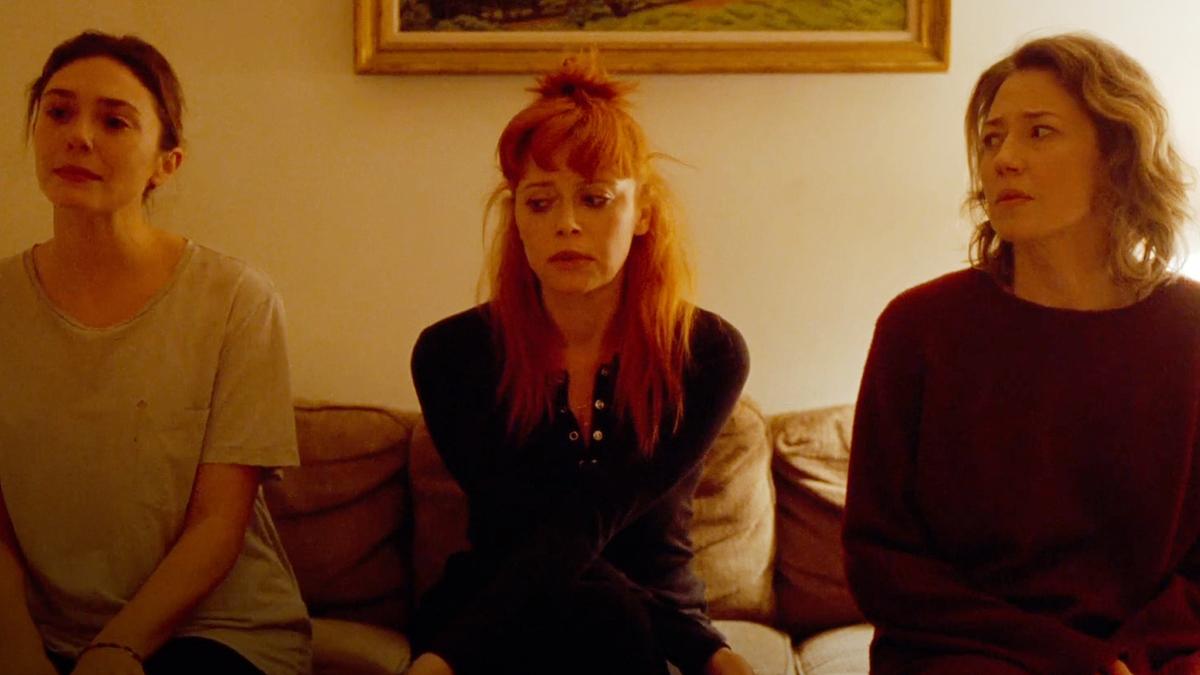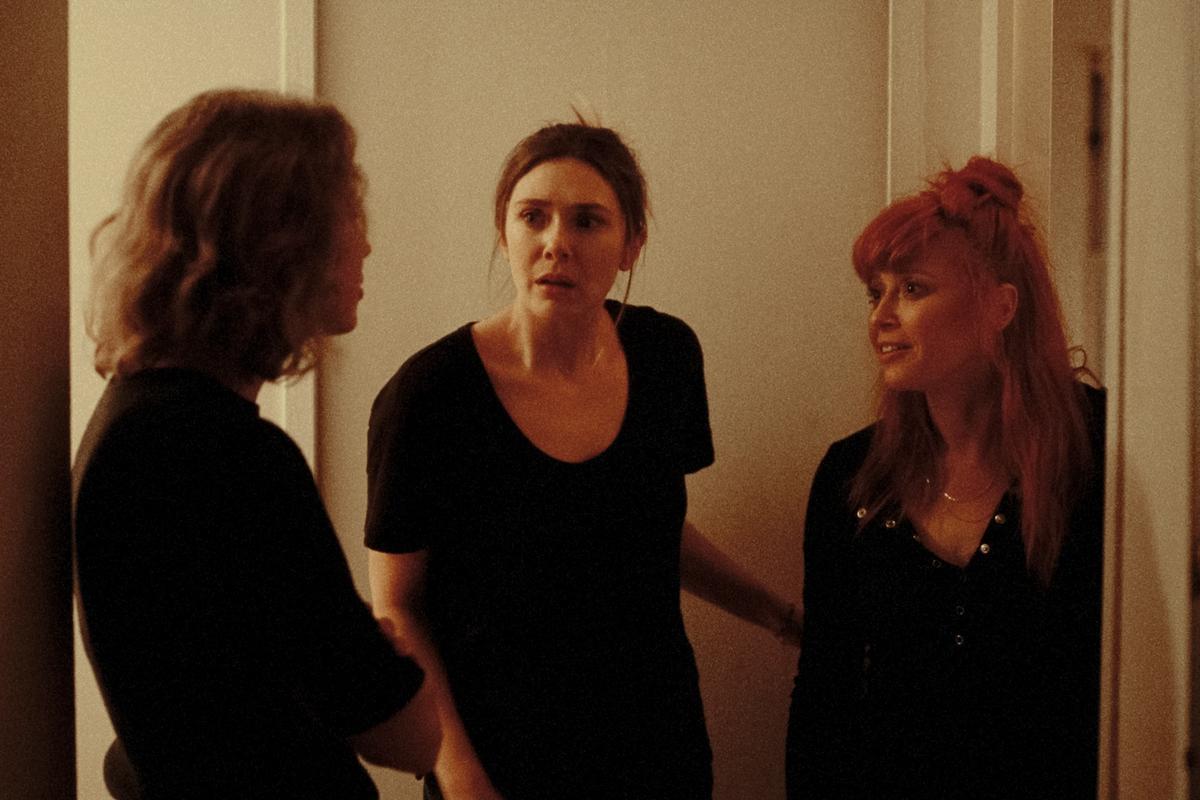In His Three Daughters, director Azazel Jacobs crafts a fragile and tightly-wound meditation on familial grief, spinning what would possibly seem to be a run-of-the-mill stage play narrative right into a wealthy, textured portrait of three estranged sisters going through the looming lack of their father. What elevates this in any other case quiet chamber piece into one thing extraordinary is the triad of mesmerising performances from Carrie Coon, Natasha Lyonne, and Elizabeth Olsen — every providing a definite imaginative and prescient of how loss shapes us in sudden, typically harmful, methods.
The movie’s premise is straightforward however emotionally charged: three grownup sisters — Katie (Coon), Rachel (Lyonne), and Christina (Olsen) — collect of their childhood New York condo to care for his or her dying father, Vincent (Jay O. Sanders). What unfolds over the movie’s taut runtime isn’t an Oscar-baity, melodramatic race to the underside or a Shakespearean wrestle for inheritance, however somewhat an intricate, typically quietly devastating examination of what it means to dwell within the shadow of a beloved one’s impending demise. Jacobs, additionally the author, steers away from clichés and straightforward emotional beats, selecting as an alternative to dwell within the unresolved areas of awkward exchanges and lingering resentments which have festered between these ladies for many years.
His Three Daughters (English)
Director: Azazel Jacobs
Solid: Carrie Coon, Natasha Lyonne, Elizabeth Olsen, Jovan Adepo, Jay O. Sanders
Runtime: 101 minutes
Storyline: Three distant sisters reunite in NYC to care for his or her sick father
Coon’s Katie, the eldest and most brittle of the trio, carries the burden of eldest-child obligation with a practiced sense of management. There’s a stress to her each gesture, her clipped speech betraying a lady who has taken on the mantle of duty, not out of affection, however as a result of somebody needed to. Katie’s fixation on getting her father to signal a DNR order feels virtually villainous in its chilly pragmatism, however Coon masterfully hints at a deeper, quieter desperation — an ache to regulate not less than one facet of an uncontrollable scenario.

A nonetheless from ‘His Three Daughters’
| Picture Credit score:
Netflix
In stark distinction, Olsen’s Christina is a determine of softness, an embodiment of serene, if naïve (and virtually crazed), optimism. A faithful spouse and mom, Christina’s religious calm and mindfulness practices make her appear, at first, ill-equipped to deal with the looming tragedy. But Olsen imbues the character with an unstated resilience; beneath the floor of her placid demeanor, there’s a profound disappointment, a quiet understanding that each one the constructive pondering on this planet can’t stave off the inevitable.
However it’s Lyonne’s Rachel who turns into the emotional lynchpin of the movie. The pot-smoking, center youngster has lived with their father within the household’s rent-controlled condo for years, watching him deteriorate whereas numbing herself with sports activities betting and the hourly blunt. Lyonne’s efficiency is uncooked, unvarnished, and deeply telling. There’s a brittle humor to Rachel’s makes an attempt to deflect her sisters’ judgment, but in addition a vulnerability that cuts deep. She is the one who most visibly carries the emotional scars of their shared historical past, and Lyonne brings to life that stress, caught between obligation, guilt, and the craving for escape.

The movie’s beating coronary heart lies within the unstated. The condo itself, the place a lot of the motion unfolds, turns into a personality of its personal — a claustrophobic, memory-laden house the place each nook holds the burden of unresolved tensions. Frances Ha cinematographer Sam Levy’s digicam captures this with a deliberate, virtually voyeuristic gaze, following the sisters as they transfer by way of rooms like trapped animals, their each look loaded with unstated resentments and unresolved grief.
And but, Jacobs doesn’t permit the movie to spiral into despair. There’s a tender, virtually hopeful high quality to the way in which the story unfolds, notably in its ultimate act, the place the much-alluded, ailing father, Jay O. Sanders, delivers a single heart-wrenching monologue that reframes all the things that has come earlier than it. This shattering scene serves to indicate how little time we now have with the folks we love, and the way typically we squander that point with pettiness, concern, and anger.

A nonetheless from ‘His Three Daughters’
| Picture Credit score:
Netflix
What makes the route so profoundly transferring is the way in which Jacobs sidesteps the predictable rhythms of grief drama. He isn’t eager about grand gestures or cathartic blowouts; somewhat, he lingers within the moments in between — the bitter silences, the half-finished sentences, the fleeting glances that reveal way over any climactic speech ever might. It’s a movie about absence — not simply the absence of a father — however the absences which have outlined these ladies’s relationships with one another.
Whereas the movie doesn’t construct to a typical emotional crescendo, it does attain a quiet, devastating conclusion. There’s no simple catharsis right here, no massive tearful reconciliation. As an alternative, Jacobs provides one thing extra refined and, maybe, extra sincere: the concept that grief, like household, is messy, unresolved, and sometimes stuffed with unfastened ends. The sisters don’t stroll away with all their wounds healed, however they stroll away. And in the long run, that appears like sufficient.

His Three Daughters is much less a movie about demise than it’s about life — concerning the cumbersome, imperfect methods we attempt to maintain on to the folks we love, whilst they slip by way of our fingers. It’s a narrative of three ladies who, in their very own flawed, fumbling methods, try to reconcile the folks they’ve turn into with the youngsters they as soon as had been, and it’s the simplicity of this concept that makes it so brilliantly affecting.
His Three Daughters is at present obtainable to stream on Netflix
Revealed – September 22, 2024 05:52 pm IST





